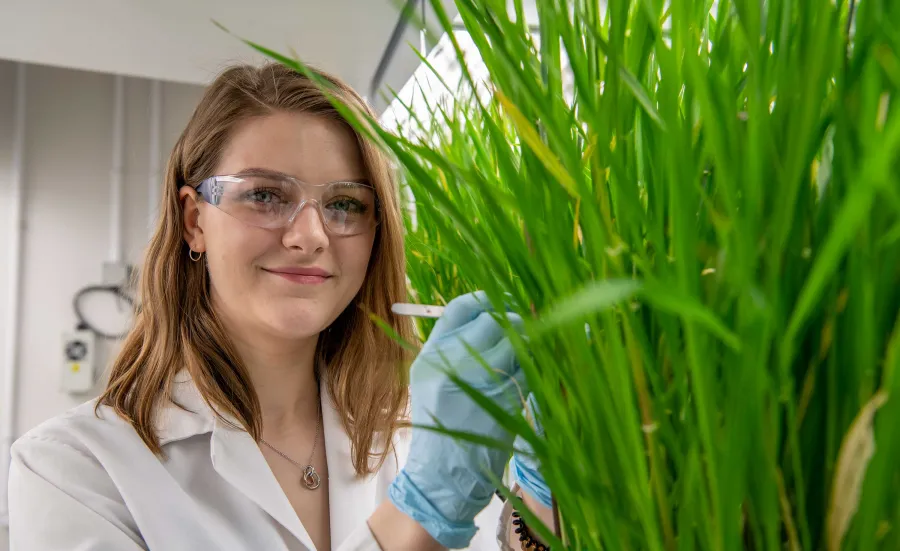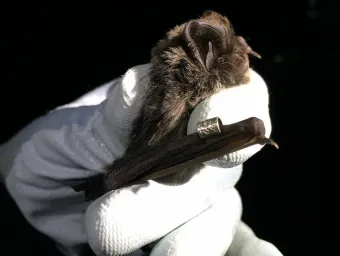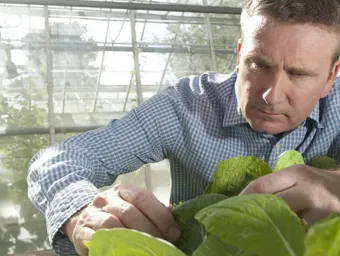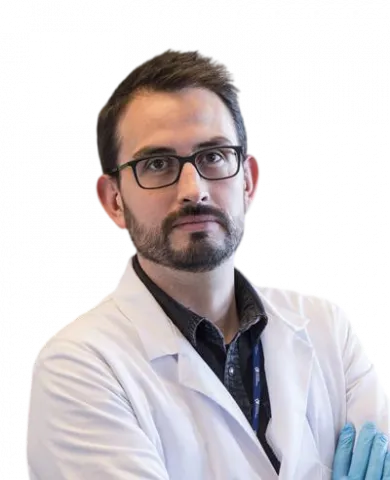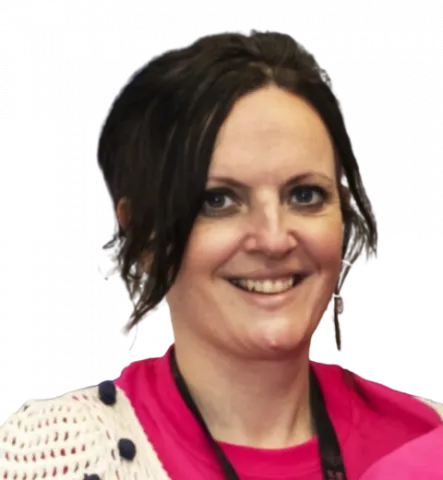Key facts
Purpose-built life science building
with outstanding laboratories and facilities with the latest equipment.
Royal Society of Biology accreditation
Our courses are accredited by the Royal Society of Biology.
Strong links with business and industry
We join forces with local authorities, government and sectors from food to pharmaceuticals.
Overview
About the School of Biological Sciences
Our research in the areas of molecular and cellular bioscience, biomedical sciences, ecology and the environment focuses on real-world issues.
The impact of our work goes far beyond the laboratory and includes:
- creating wildlife corridors to protect jaguars in Belize
- harnessing the antimicrobial properties of copper
- developing the latest vaccines
We share our passion for discovery, and inspire and nurture the bioscientists of the future. Collaborating with other disciplines and universities, we use our expertise to support our industry and community partnerships.
We're based in a £50 million life science building, which is home to a wide range of research facilities.
Research culture and environment
Our ambition is to deliver outstanding research. We are an open and collaborative research community, where everyone's ideas find a platform for discussion. This inclusive approach is key to our research activity and ensures we remain at the forefront of biosciences.
Our research community is organised around 6 themes:
- molecular and precision bioscience
- plants and food security
- cell and developmental biology
- ecology and evolution
- microbiology
- neuroscience
Our research students work in a supportive environment alongside academics, postdoctoral fellows and research technicians. We are committed to the implementation of the Concordat. This is a UK agreement to support the career development of all researchers.
The Biological Sciences Postgraduate Society offers students opportunities for learning, networking and socialising.
The South Coast Biosciences Doctoral Training Partnership (SoCoBIo DTP) demonstrates our commitment to the training and development of postgraduate researchers. This is a Biotechnology and Biological Sciences Research Council funded DTP. It offers a 4-year research training programme, which provides students with the skills they need to develop into future bioscience leaders.
We have a committed team of technicians, who support all aspects of our research, from using facilities to day-to-day running of laboratories. We are signatories to the Technician Commitment. This means that we develop the careers of our technicians to the same level as our other other staff and students.
Research facilities
Our school is a hub for cutting edge laboratories and research facilities for researchers in biological sciences. We also support the wider University, local and corporate communities. The facilities are independently operated and provide specialised research equipment supported by dedicated technical expertise.
Fellowships
We welcome applications from researchers interested in applying for funding for independent fellowships.
Eligible schemes
Our support package helps researchers develop competitive fellowship applications to a wide range of schemes, including the following. Contact us for advice about schemes not listed here:
- BBSRC Discovery Fellowships
- ERC Starting, Consolidator or Advanced Grants
- MRC Career Development Awards
- NERC Independent Research Fellowships
- NIHR Advanced Fellowships
- The Royal Society University Research Fellowships
- The Royal Society Dorothy Hodgkin Fellowship
- UKRI Future Leader Fellowships
- Wellcome Trust Early Career Awards or Career Development Awards
Support for applicants
We match applicants with a departmental host, who will provide:
- help with applications, including support letters and costings
- introductions to potential collaborators
- introductions to existing fellows
- a tour of our department and facilities
Support for research fellows
Successful applicants enter our formal fellowship scheme, which offers:
- training
- access to the latest equipment
- protected time away from teaching and administrative duties
- opportunities to enter PhD studentship and research grant competitions
- opportunities to move into a permanent academic role
Moving into a permanent role when a fellowship ends (proleptic appointments)
Sometimes a research fellow will wish to move into a permanent academic role with us when their fellowship ends. This is called a proleptic appointment.
How research fellows move to a permanent role
- During the fellowship, we'll set the objectives the research fellow must meet to move to a permanent role.
- After 18 months, the school will review progress against objectives.
- If the research fellow meets their objectives, they can apply for a permanent role.
- As part of the application process, we'll ask them to give a research talk to colleagues, complete a teaching exercise, and undergo a panel interview.
Get in touch to discuss a fellowship application
Whatever stage you're at with your application, we'd love to hear from you.
- Email our fellowships champion, Dr Emily Gwyer Findlay: e.gwyerfindlay@soton.ac.uk.
- Email our head of research, Professor Diego Gomez Nicola: d.gomez-nicola@soton.ac.uk.
Equality, diversity and inclusion (EDI)
Our EDI committee, chaired by our EDI champion Dr Judith Lock and deputy chair Dr Daniel Stabler, has members from across our school. We include academic, technical, administrative and research staff, along with undergraduate and postgraduate students.
Our continued ambitions are to develop and implement policies to ensure equality, by addressing inequalities that may result from protected characteristics. Our aim is to make things better for everyone by recognising and celebrating our diversity. We renewed our silver SWAN award in February 2022 which recognised our work on gender equality.
We have received funding for projects from Faculty of Environmental and Life Sciences EDI awards. These projects have focussed on:
- return from long-term leave, including maternity leave and long-term sickness, led by Judith Lock
- development of a digital display for our foyer, led by Jorn Cheney
Digital display case study
As a school, we are committed to empowering our students and other biologists to feel seen, heard, represented and valued at the University. One of our key initiatives is to increase the visibility of under-represented scientists.
We ran a case study which found that although we are a relatively diverse school, many of our students don’t see their cultural heritage or background reflected in our postgraduate and faculty communities. As a result, we are developing a digital display for our foyer.
The display aims to increase awareness about EDI in biological sciences. It will highlight:
- current role models
- historical figures that have moved the field forward
- past and present challenges to increasing diversity
- the benefits that increased diversity has brought to biological sciences
- networks, conferences and events from both national and international sources
- books on issues of EDI in science, technology, engineering and mathematics (STEM)

Our courses
Contribute to research in the field of biological sciences by completing a PhD with us.
You can also explore our current research projects.
Research and enterprise
Learn more about our research and how our work has real-life impact.
Our research community
Research groups bring specialists together to share knowledge within different themes. Our research is based around 6 themes. We are also play a key role in the interdisciplinary National Biofilms Innovation Centre.
Our people
Work with us
-
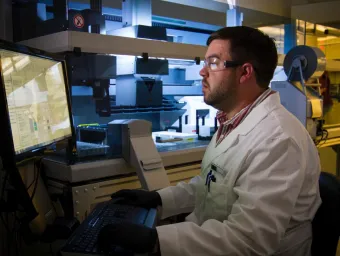
Jobs at Southampton
Check the University’s job listings to find opportunities within the School of Biological Sciences. We also have a number of externally funded research fellowships.
